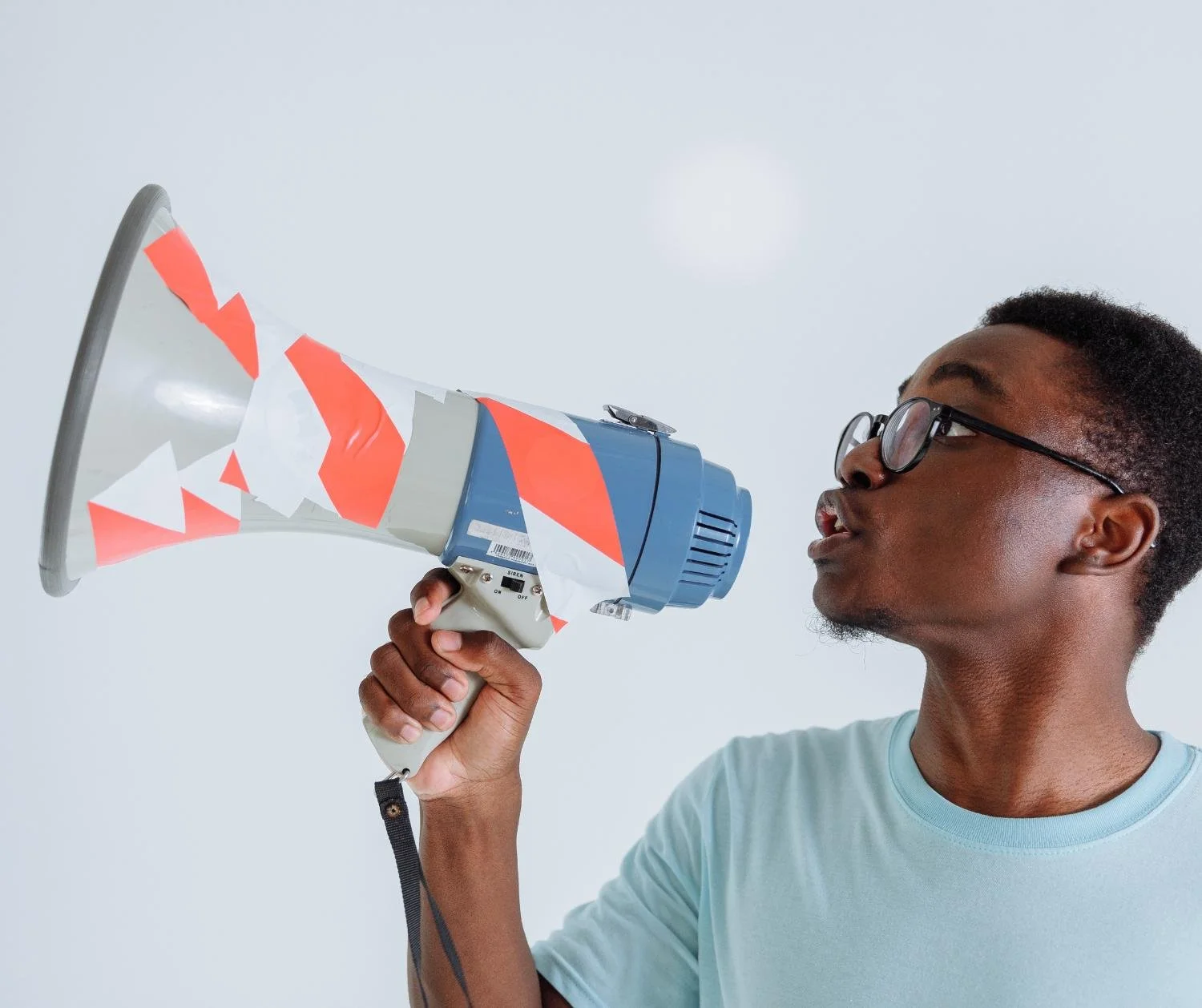Effective Online Voice Treatment for Vocal Nodules
Vocal nodules and other voice issues, such as polyps, cysts, or general swelling, can alter the sound and feel of your voice. For people who rely on their voice every day, such as teachers, singers, healthcare professionals, or caregivers, that change can be heartbreaking. It’s frustrating when something so personal becomes a daily challenge.
But here’s the good news: voice problems can be treated. And you don’t have to leave your home to get help. With online voice therapy, support is available. Even if you've been struggling with voice changes for a while, speech pathologists can deliver effective treatment for a wide range of voice problems.
Key Takeaways:
What Are Vocal Nodules: Vocal cord nodules are small, callus-like growths on the vocal cords caused by repeated strain, overuse, poor vocal habits, or muscle tension.
Symptoms and Diagnosis: Signs of vocal cord nodules include hoarseness, voice fatigue, reduced vocal range, and a rough or strained quality of the voice. Diagnosis typically begins with an evaluation by a laryngologist, also known as an ear, nose, and throat specialist (ENT).
Causes and Risk Factors: Voice overuse, acid reflux, and other irritants can all increase the risk of vocal cord nodules and other benign lesions.
How Online Voice Therapy Works: Speech pathologists can conduct virtual or in-person voice therapy sessions. Online voice therapy offers the benefit of personalized vocal exercises, guidance on healthy voice use, and real-time coaching, all from the comfort of home.
What to Expect in Voice Therapy: Sessions are typically held weekly and include vocal hygiene tips and custom exercises tailored to your voice. Exercises may be modified during each visit based on how your voice responds. Consistent one-on-one support from a licensed speech-language pathologist, along with regular weekly follow-up, is necessary for progress.
Causes and Risk Factors of Vocal Cord Nodules
Symptoms and Diagnosis of Voice Disorders and Vocal Cord Issues
How Online Voice Therapy Works
What to Expect In Online Voice Therapy
Frequently Asked Questions About Vocal Nodules
How Connected Speech Pathology Treats Vocal Cord Lesions Online
What Are Vocal Nodules?
Vocal cord nodules are a pair of small, pearly-white bumps that appear on the edges of the vocal folds. They are typically signs of vocal abuse or ongoing vocal cord irritation.
They’re especially common in individuals who use their voices all day, such as teachers, singers, coaches, cheerleaders, public speakers, attorneys, religious leaders, and healthcare professionals.
A person with nodules may feel as though they're constantly clearing their throat or that their voice is hoarse by the end of the day. Or they might notice that it’s harder to hit high notes, speak loudly, or maintain their voice for an extended period of time.
If your voice feels tired more often than not, it’s worth undergoing further follow-up by a throat doctor (laryngologist).
Vocal Cord Polyps vs. Vocal Cord Nodules: What’s the Difference?
Vocal cord polyps and nodules can both result from vocal strain, but they don’t look or behave the same.
Polyps usually develop after a single significant vocal injury, such as a long day of cheering or a night of singing through pain. They're soft, blister-like bumps that can form on just one vocal fold.
Nodules are more like calluses. They build up slowly, often on both cords, from repeated misuse or pushing the voice too hard without rest. Both can cause similar symptoms, such as hoarseness or a scratchy feeling, but they may require different approaches in therapy.
Vocal Cord Cysts: When a Lesion Is Trapped Below the Surface
Unlike polyps and nodules, vocal cord cysts form below the surface of the tissue. They’re like small sacs filled with fluid or thick material.
These cysts often cause more noticeable changes in voice quality, resulting in a voice that sounds rough or weak. Because they’re deeper, they don’t respond as quickly to rest or casual voice care. Voice therapy is crucial in easing tension and allowing the healthy parts of the vocal cords to work more efficiently.
Benign Vocal Cord Lesions: A Catch-All You Shouldn’t Ignore
When doctors or voice therapists refer to “benign vocal cord lesions,” they’re talking about non-cancerous growths or injuries on the vocal cords. This includes nodules, polyps, cysts, and similar conditions.
These may sound minor, but subtle changes in your voice can have a significant impact on your quality of life.
Some benign lesions respond well to voice therapy alone, while others may require surgical removal. In those cases, voice therapy is typically recommended before and after surgery to promote healing and reduce the risk of future injury.
The good news is that many people experience real improvement without surgery. The key is early intervention and working with a clinician who specializes in voice to treat symptoms and restore healthy vocal function.
Causes and Risk Factors of Vocal Cord Nodules
Vocal cord nodules often develop from chronic strain on the voice, particularly in individuals who speak, sing, or project their voice loudly for extended periods without adequate rest or proper technique. This includes frequent yelling, throat clearing, speaking in noisy environments, or poor breath support.
Beyond voice use, several medical and environmental factors can increase the risk of developing nodules or other benign vocal lesions:
Acid reflux that irritates the throat and vocal cords
Hormonal changes in pre-adolescent boys or young women during perimenopause
Hypothyroidism and other systemic inflammatory conditions
Chronic allergies or postnasal drip
Exposure to inhaled irritants, such as smoke, dust, chemicals, or pollutants
Medical conditions such as respiratory infections, autoimmune disease, or chronic sinus issues that lead to ongoing vocal fold inflammation
These, along with other factors, can inflame or sensitize the vocal folds, making them more susceptible to injury during voice use.
Addressing both vocal behavior plus managing reflux behaviorally or with reflux medications, making dietary modifications, and improving voice habits all play a role in healing and preventing future problems.
How to Know if Your Vocal Cords Are Damaged
Check out our blog on how to know if your vocal cords are damaged for more information!
Symptoms and Diagnosis of Voice Disorders and Vocal Cord Issues
A raspy or hoarse voice is the most common symptom of vocal cord nodules and other vocal cord growths. These changes in your voice typically result from the growth interfering with how the vocal cords vibrate during speech, making it harder to speak clearly or comfortably. You might also notice your voice tires easily, cracks, or loses its usual range and strength.
The gold standard for diagnosing vocal cord disorders involves an evaluation by a physician, sometimes referred to as an ear, nose, and throat (ENT) specialist, who will examine the voice box (larynx). The ENT often uses a laryngoscope or similar tool to obtain a clear view. Your ENT or speech pathologist will also conduct an acoustic analysis to determine the extent of the problem.
If there’s any uncertainty about the nature of the growths, a biopsy may be performed to rule out other conditions. Receiving an accurate diagnosis is a crucial step, as it allows your care team to develop effective strategies tailored to your specific needs and ensures you get the proper treatment for your voice.
How Online Voice Therapy Works
During the initial consultation, a licensed speech-language pathologist (voice therapist) will take time to understand the client’s voice concerns, medical history, and daily voice use. They will guide the client through a series of vocal tasks that help assess how the voice is functioning and where it may need support.
Based on this evaluation, the voice therapist will create a personalized treatment plan tailored to the individual’s voice and lifestyle. This often includes exercises to reduce strain, recommendations for voice rest, and strategies that promote long-term vocal health.
Each session provides real-time feedback, allowing the client to make meaningful adjustments. Voice therapy focuses on building vocal strength and control through targeted exercises and technique refinement, helping the individual hear and feel steady improvement over time.
Teletherapy offers unique advantages. Clients work from a familiar space, enjoy more flexible scheduling, and avoid the added fatigue of commuting.
It also allows the voice therapist to hear how the voice functions in real-life environments. For those at exceptionally high risk of developing vocal nodules, such as those with high vocal demands, remote voice therapy can yield more sustainable results. Voice therapists also provide tools and resources to support voice care between sessions.
What to Expect In Online Voice Therapy
During voice therapy, clients work one-on-one with a licensed speech-language pathologist to reduce strain, build vocal strength, and restore their voice in a way that fits their daily lives.
Voice Therapy is personalized for both personal and professional voice users. Here’s what the process typically includes:
Practical vocal hygiene strategies
Discover simple yet effective ways to care for your voice, such as staying hydrated, avoiding throat clearing, and minimizing background noise when speaking. These strategies reduce irritation and help prevent further injury.
Targeted vocal exercises
Practice exercises tailored to how your voice sounds and functions. There are no one-size-fits-all drills; therapy is continuously adjusted to match your individual needs, voice quality, and professional demands.
Real-time coaching and support
Receive direct feedback and guidance from a voice specialist who monitors your progress and fine-tunes your technique at each step.
Frequently Asked Questions About Vocal Nodules
1. What’s the best way to heal vocal nodules?
The most effective way to heal vocal cord nodules is through voice therapy with a licensed speech-language pathologist. Treatment includes daily vocal exercises, vocal rest, and better voice habits. Staying hydrated, avoiding vocal strain, and learning efficient voice use to support long-term recovery.
2. Can you talk if you have vocal cord nodules?
You can still speak if you have vocal cord nodules, but your voice might sound hoarse, breathy, or tight. Many people keep talking through the discomfort and end up making it worse. Voice therapy helps you speak clearly without further damaging your voice.
3. How long do vocal nodules last?
Without treatment, vocal cord nodules can linger for months or even years. Most people notice improvement within 4 to 6 weeks of starting therapy. The sooner you start, the faster and more comprehensive your recovery will be.
How Connected Speech Pathology Treats Vocal Cord Lesions Online
At Connected Speech Pathology, you get care from experts who focus only on voice. Our speech-language pathologists have advanced training in treating vocal cord nodules, polyps, and cysts. Most clients improve without surgery, using voice therapy designed for their specific needs.
We’ve helped teachers, singers, parents, and professionals find their voice again. One client taught classes without strain after months of hoarseness. Another could finally read bedtime stories without going hoarse. These real results come from personalized therapy that works with your life and your voice.
Summary
If you’re living with hoarseness, vocal strain, or any voice disorder that’s changed how you sound, there’s a way forward. With expert support from a speech-language pathologist, vocal healing is possible.
About the Author
Allison Geller is a communication coach, speech-language pathologist, and founder of Connected Speech Pathology, an international online practice providing professional communication coaching and speech therapy for children, teens, and adults. With more than two decades of experience, she has worked in medical and educational settings, published research on aphasia, and leads a team of specialists helping clients improve skills in public speaking, vocal presence, accent clarity, articulation, language, fluency, and interpersonal communication.










